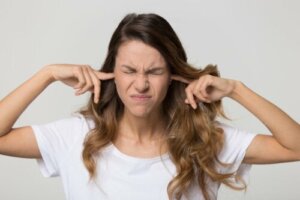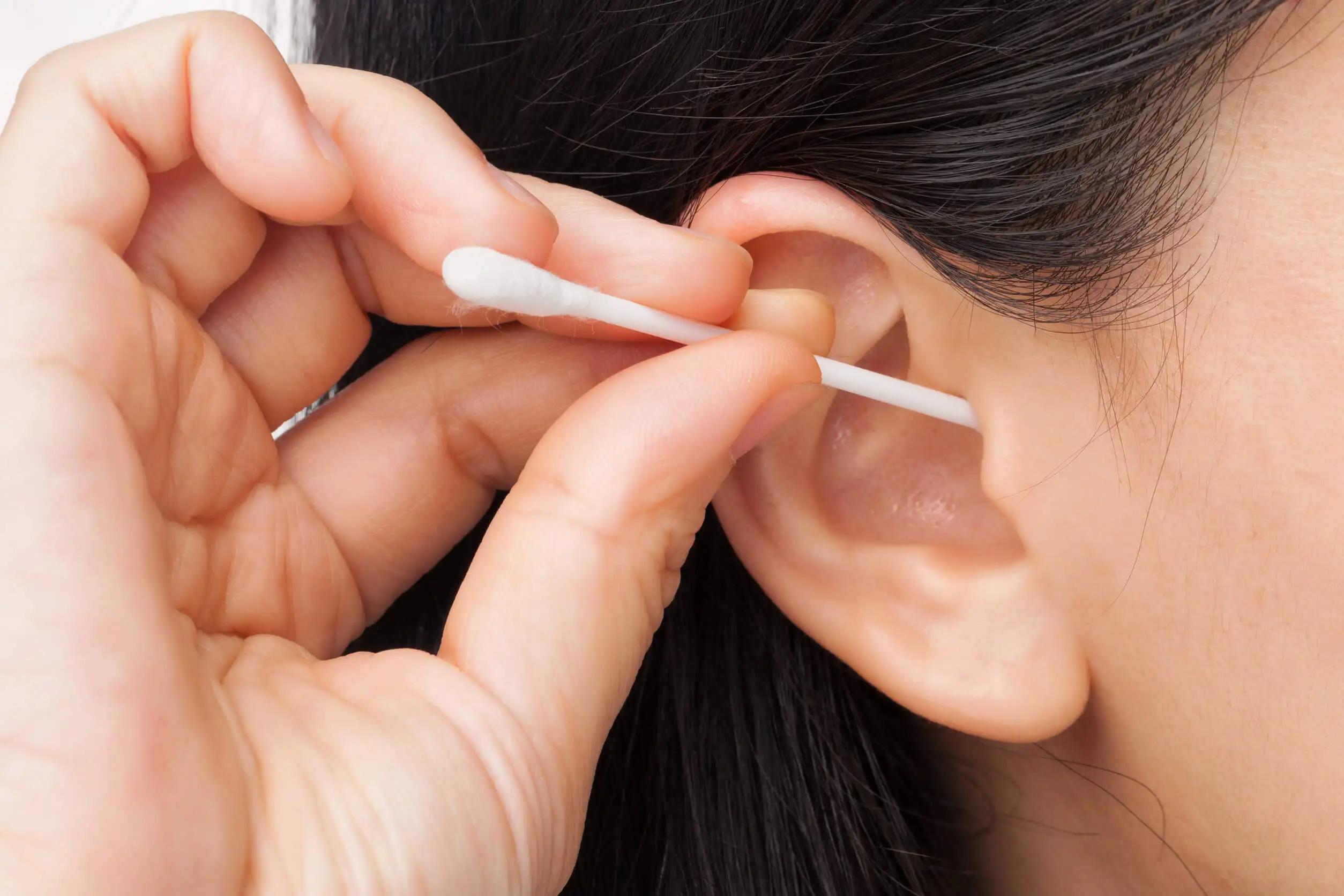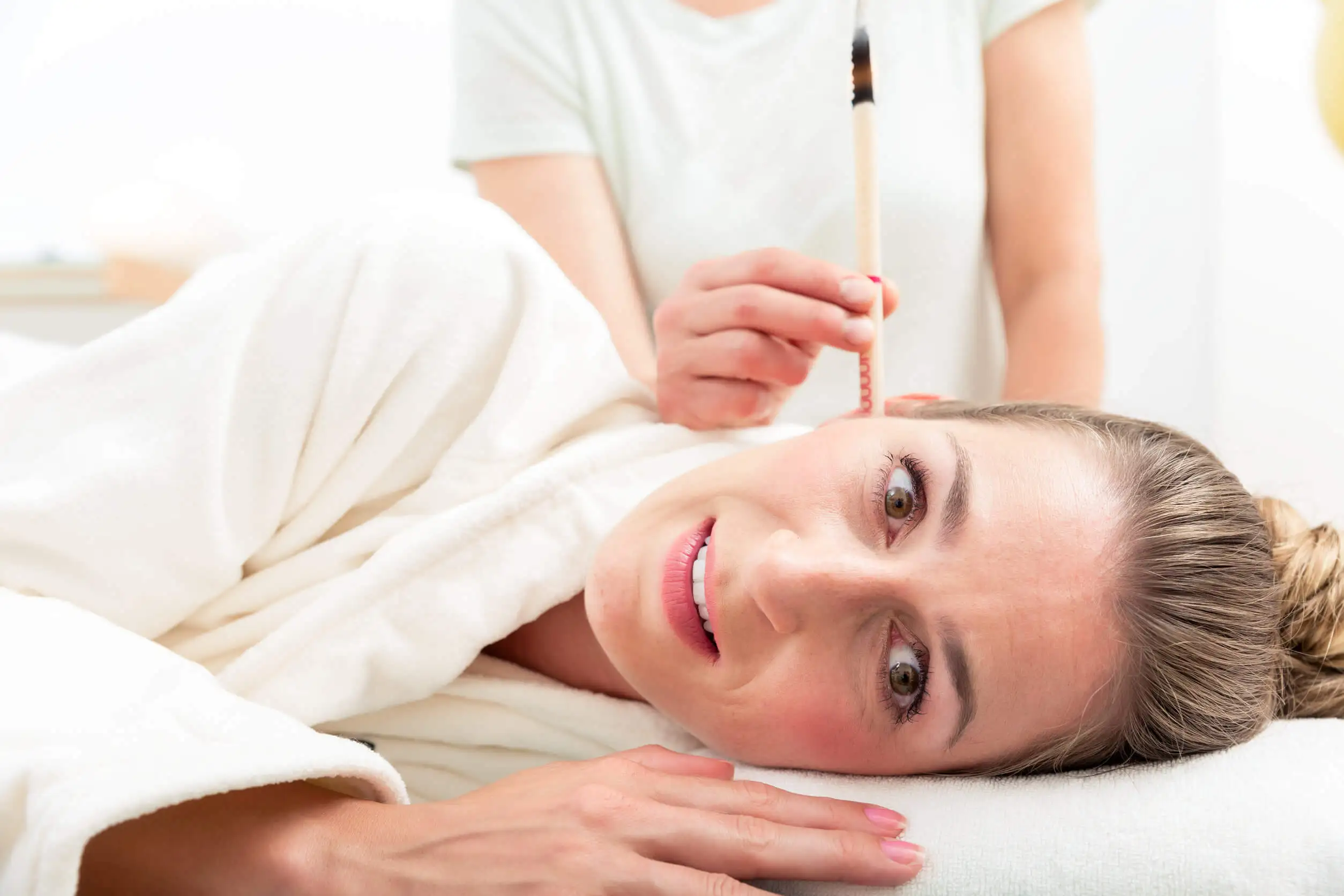9 Things You Should Never Do to Your Ears


Reviewed and approved by the doctor Maricela Jiménez López
The ears are perhaps one of the parts of the body to which the least attention is paid. However, they’re also affected by bad habits. Do you know about the things you should never do to your ears?
Have you analyzed what attention your ears should receive after a day at the pool? Have you calculated how many hours you have your headphones on to listen to music at maximum volume? Do you clean your ears excessively with swabs or cotton swabs? Maybe, now that you’ve read these questions, you’ve discovered that you’re actually damaging these sensitive organs without even knowing it. In this article, we’ll tell you all about 9 things you shouldn’t do to your ears.
9 things you shouldn’t do to your ears
Do you want to know how you can improve the cleanliness and care of your ears? If so, read on to learn about the things you should avoid to keep them in perfect condition. Take note!
1. Using Q-tips for wax removal

To begin with, here’s one of the most common ear care mistakes: using cotton swabs to clean your ears. This so-called hygiene method has been badly promoted (with the best intentions, but without the right information). Thus, combined with the bad reputation that wax is synonymous with dirt, a myth has been created that earwax harms hearing health.
The reality is that, as an article published in BMJ Clinical Review explains, earwax is secreted by the ear and has antibacterial properties. In addition, it serves as a lubricant; so having earwax is actually a sign of good ear health.
Along these lines, using swabs is one of the things you should not do to clean your ears, as it can cause itching and irritation. The swab pushes more wax than it removes and, over time, a plug is created that would affect the ability to hear. They are known to cause infections, injury to the ear canal, and perforation of the tympanic membrane.
What can you do to maintain your hygiene?
- You may have been using Q-tips since you were a child, so it can be difficult to stop using them.
- However, in case you feel they are dirty, use a soft towel to remove excess wax.
We think you may also enjoy reading this article: Clogged or Blocked Ears: 12 Possible Causes and Their Treatment
2. Listening to loud music, one of the things you should not do to your ears
Have you ever been told, “Turn down the music or you’ll go deaf”? Well, this warning is not wrong. The fact is that using hearing aids to listen to music at high volume continuously damages the auditory system.
Hearing loss or hearing impairment occurs when the hair cells inside the ear, which convert sound waves into electrical signals, become damaged or deteriorate. Although this happens naturally due to the passage of time and age, an article published by The McGill Journal of Medicine certifies that habits related to excessive noise are also involved in its development: spending lots of time at concerts, clubs, or the use of personal music players.
Thus, one of the things you should avoid is putting on headphones with loud music. But… How do you know if the volume is hurting your ears?
Ask those around you if they can hear the music. If the answer is yes, you’re putting your ears at risk.
We recommend that you follow the 60:60 rule. That is, never exceed 60% of the maximum volume and listen to music with headphones for a maximum of 60 minutes per day.
3. Using ear candles

In recent years, different methods have appeared without scientific evidence to maintain beauty and hygiene. This is also the case with the famous ear candles, monotherapy, or auricular igneotherapy.
These devices work by inserting one end of the ear candle into the ear and lighting the other end . Then, in theory, the earwax is absorbed into a tube inside the candle.
The problem? The residue that ends up inside the candle has nothing to do with the ears but is the natural residue of the candle itself. This means you’ll be introducing external components into the ear that can lead to infections, as evidenced by a 2007 survey of members of the Northwest Academy of Otolaryngology-Head and Neck Surgery.
Like this article? You may also like to read: Remove Earwax Blockage without Damaging Your Ears
4. Dry ears are synonymous with healthy ears
When you swim in the pool or at the beach, you may only remember to shower afterwards to wash off the salt or chlorine. However, you should pay just as much attention to your ears, because that’s where bacteria can lodge, which in a moist environment can grow quickly and cause painful infections.
Therefore, when you go to the swimming pool, remember to wash the outside of your ears and then dry them well with a cloth towel. You can even use special drops that will help you eliminate any bacteria in them.
5. Performing ear irrigations or ear cleanses
Some people often irrigate their ears at home with hydrogen peroxide or other substances in order to reduce discomfort in the ear canal. In fact, popular literature recommends this as an effective method to remove excess earwax. However, ear cleanses without medical supervision can have very adverse effects.
One of the main risks of this method is the retention of liquid with the consequent increase of humidity in the ear. This situation favors bacterial proliferation and sometimes displaces germs into the ear canal.
In addition, aggressive irrigations can worsen tympanic membrane perforation and hearing loss. It’s also associated with an increased risk of tinnitus, pain, and vertigo.
6. Swimming in polluted water
In general, diving or swimming in dirty lakes, beaches, or ponds is one of the things you should not do to your ears. This increases the risk of bacterial and fungal ear infections. In this regard, the typical presentation is swimmer’s otitis, a form of otitis externa characterized by the following symptoms:
- Stinging inside the ear
- Ear pain
- Redness of the ear canal
- Clear and odorless discharge
7. Not wearing hearing protection in noisy environments
Direct exposure to high intensity sounds often compromises the integrity of the tympanic membrane and the other elements involved in hearing. It’s advisable to wear protective headphones during working hours in companies where excessive noise is produced, such as factories, blacksmith shops, and airports.
Noises above 110 decibels are associated with an increased risk of hearing loss. For this reason, it’s essential not to exceed 75 decibels in any type of activity for work, social, or entertainment purposes.
Like this article? We think you may also like to read: Irritation Behind the Ears: What Can Cause It?
8. Removing a foreign body without medical help
Possessing a foreign body in the ear is often desperate and causes a lot of anxiety. In this situation, you should never try to remove the object yourself, as you may make the situation worse.
Trying to free yourself from the foreign body can push it further in, and even injure the walls of the ear canal. Sometimes, inserting items into the ear can lead to perforation of the tympanic membrane.
9. Applying medication without a prescription
Self-medicating is one of the things you should never do to your ears. The ear administration and oral consumption of drugs should be done under strict medical recommendation and supervision. Health professionals are the only people;e qualified to take care of your discomfort and guide the treatment.
Do you do any of these things you shouldn’t do to your ears?
What about you? Do you take into account any of the above-mentioned issues? It’s important that you learn to take care of yourself so that you won’t have any complications in the future. Also, remember that if you have any questions, if you’re starting to have problems hearing, or if your ears feel dirty, the best thing to do is to visit your doctor.
All cited sources were thoroughly reviewed by our team to ensure their quality, reliability, currency, and validity. The bibliography of this article was considered reliable and of academic or scientific accuracy.
- Hobson JC, Lavy JA. Use and abuse of cotton buds. J R Soc Med. 2005 Aug;98(8):360-1.
- Khan, NB, Thaver, S. y Govender, SM (2017). Prácticas de autolimpieza del oído y el riesgo asociado de lesiones en el oído y síntomas relacionados con el oído en un grupo de estudiantes universitarios. Revista de salud pública en África. https://doi.org/10.4081/jphia.2017.555
- Kwak C, Han W. The Effectiveness of Hearing Protection Devices: A Systematic Review and Meta-Analysis. Int J Environ Res Public Health. 2021 Nov 7;18(21):11693.
- Petrescu N. (2008). Escuchar música a todo volumen. Revista de medicina McGill: MJM: un foro internacional para el avance de las ciencias médicas por estudiantes , 11 (2), 169-176.
- Rafferty, J., Tsikoudas, A. y Davis, BC (2007). Velas de oído: ¿deberían recomendarlo los médicos generales. Médico de familia canadiense Medecin de famille canadien , 53 (12), 2121–2122.
- Wang MC, Liu CY, Shiao AS, Wang T. Ear problems in swimmers. J Chin Med Assoc. 2005 Aug;68(8):347-52. doi: 10.1016/S1726-4901(09)70174-1. PMID: 16138712.
- Wright T. Ear wax. BMJ Clin Evid. 2015 Mar 4;2015:0504.
This text is provided for informational purposes only and does not replace consultation with a professional. If in doubt, consult your specialist.








